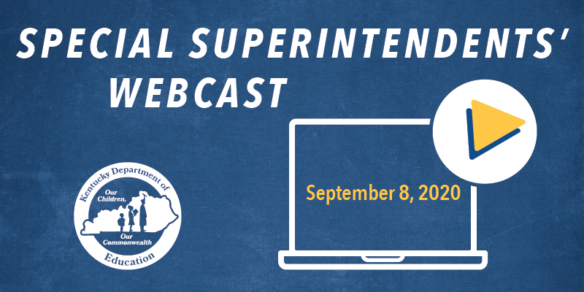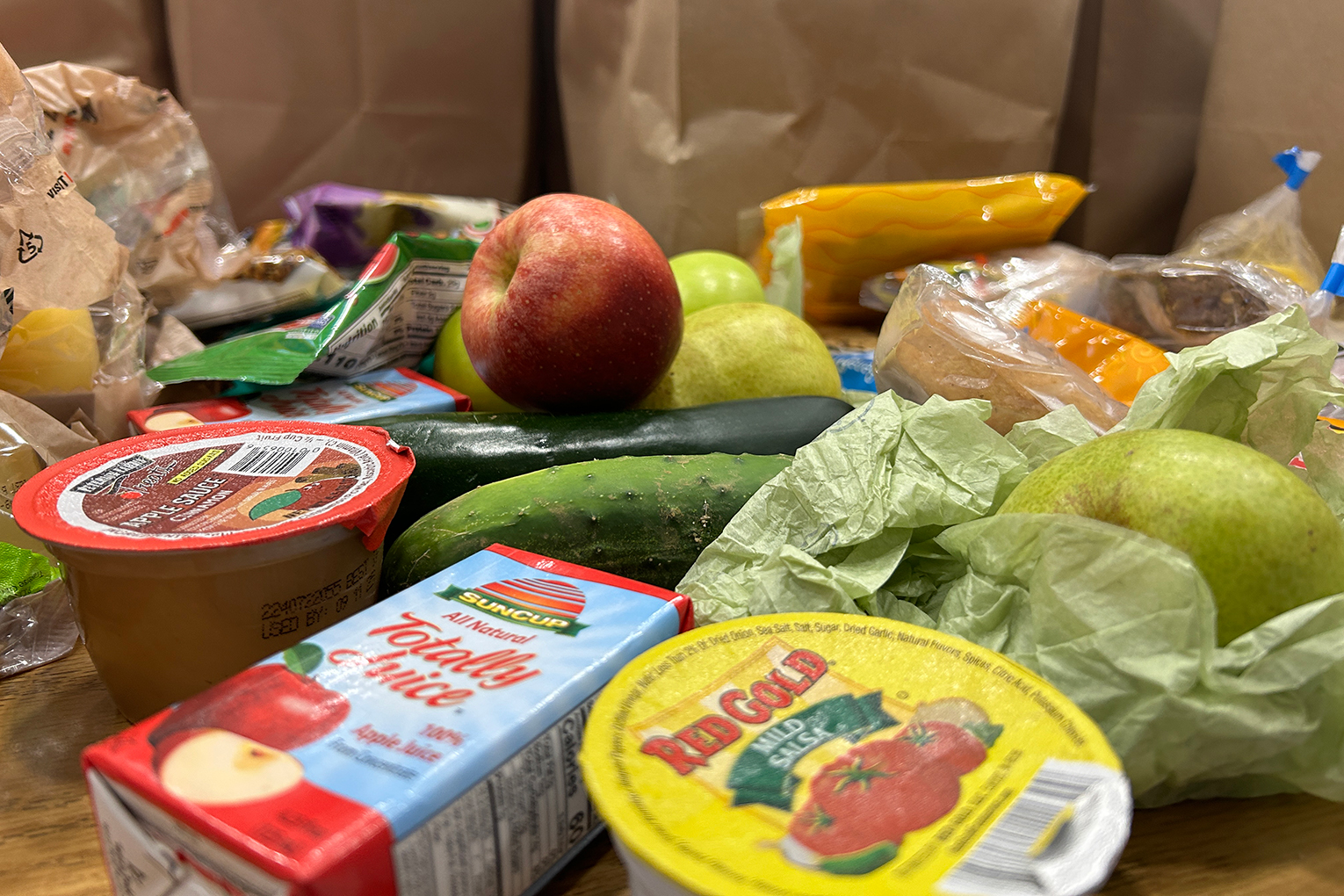
By Jim Gaines
jim.gaines@education.ky.gov
Superintendents across the state heard about updated guidance from the Kentucky Department of Education (KDE) that allows for slightly larger groups in school buildings and clarifies transportation for extracurricular activities, along with new guidance on building ventilation and student truancy amid the COVID-19 pandemic.
School superintendents heard details during the weekly Special Superintendents’ Webcast.
The Sept. 8 webcast was Kevin C. Brown’s last as interim commissioner of education. Brown, who has served as interim commissioner since Dec. 18, 2019, will return to his position with Jefferson County Schools. Jason Glass will take over as permanent commissioner on Sept. 14.
Small Groups and Transportation
An update to the guidance for allowing small groups into school buildings was issued on Sept. 2 in light of new state standards for day care capacity. In the updated Orientation and Targeted Services guidance, allowable numbers for small groups have increased from nine students and one teacher to 14 students and one teacher, said Kelly Foster, associate commissioner in the KDE Office of Continuous Improvement and Support.
“Of course, everything else around Healthy at School still needs to be followed,” she said.
That includes limiting building occupancy to 15% of normal student capacity.
Updated guidance on pupil transportation also has been released. Earlier guidance dealt primarily with daily trips to and from school, said Robin Kinney, associate commissioner in KDE’s Office of Finance and Operations. The Kentucky Department for Public Health (DPH) would have recommended keeping a 6-foot distance between students for those daily trips, but understood the logistical concerns that created, she said. Instead the guidance offers several configurations for seating, asking districts to space students out “to the extent feasible and practical,” while following other mitigation guidelines.
The update, beginning at the bottom of page 5, distinguishes between transporting students to school for in-person classes and trips for extracurricular activities. Extracurricular trips involve fewer students, take place when more buses are available and aren’t as constrained in time, therefore they require greater consideration of social distancing, Kinney said. That is substantially different from the need to get large numbers of students to and from school at specific times. School districts also should continue to consult with their local health departments on specific questions, she said.
Ventilation and Truancy Guidance
Ventilation guidance came out Sept. 8, updating the facilities and logistics guidance from June. It provides a list of resources and best practices for ventilation to help cut down on disease transmission, since the great variety of HVAC systems in Kentucky school buildings need to be addressed differently, Kinney said.
The new KDE guidance links to a recently released school guidance from the American Society of Heating, Refrigerating and Air-Conditioning Engineers (ASHRAE), she said.
The new guidance does not supersede safety laws such as keeping classroom doors locked during instruction, Kinney said. Schools should consult with their local fire marshal and the state school security marshal about specific situations, she said.
New guidance on truancy and compulsory attendance, which was released Sept. 8, directs districts to generally handle truancy issues as they have previously but with some flexibility due to COVID-19, said Matt Ross, policy adviser in KDE’s Office of Finance and Operations.
The state is not requiring attendance collection as the basis for future funding; instead, districts must use the attendance data which they chose to use under Senate Bill 177, he said. Under that bill, districts had a choice of using data from 2018-2019 or 2019-2020. But schools do have to collect participation data in Infinite Campus, based on student-teacher interactions for remote learners and attendance for in-person instruction, Ross said.
Health Cautions
Dr. Connie White, DPH deputy commissioner, cautioned school district officials to heed the example of Maine’s Big Moose Inn, which on Aug. 7 evaded COVID-19 crowd restrictions to host a large wedding reception. That event led to 140 cases of COVID-19 and three deaths. None of the deaths were among people who actually attended, but rather those who caught the disease from people who had.
White said she hoped districts – as the guardians of the health of their students, faculty and staff while at school – would not seek loopholes in guidance on transportation or other issues.
“Everyone is depending on you to make these right decisions,” she said.
White also warned districts to be aware of Legionella bacteria, which grow in pipes containing stagnant water. Any building that has been closed for more than a week and in which water wasn’t regularly running should be checked, she said. Sinks, fountains and HVAC air-cooling towers are particular breeding spots.
COVID-19 Waivers
Some school districts are asking parents to sign waivers before allowing students into in-person classes. KDE does not support requiring waivers for access to public education, Brown said. Schools should not put parents in that position and such waivers may not be legally valid, he said.
The Kentucky Constitution includes a right to public education and the law requires districts to “act reasonably” in providing that, KDE General Counsel Todd Allen said. Waivers essentially ask parents to waive that standard of reasonable care, which is legally problematic, he said.
Other districts are asking parents to sign a risk acknowledgement form. If that just notifies parents of potential COVID-19 risks, it is probably acceptable, Allen said. But some risks are known while others remain unknown, and the form should cover both without asking for a waiver of liability, he said.
During the June 9 Special Superintendents’ Webcast, the KDE Office of Legal Services outlined school districts’ legal liability and potential immunities, Allen said. Schools should refer to that for further information.
MORE INFO …
- Sept. 8 Special Superintendents’ Webcast
- KDE’s COVID-19 webpage
- KDE’s COVID-19 Reopening Guidance webpage
- Kentucky COVID-19 Hotline (800) 722-5725




Leave A Comment